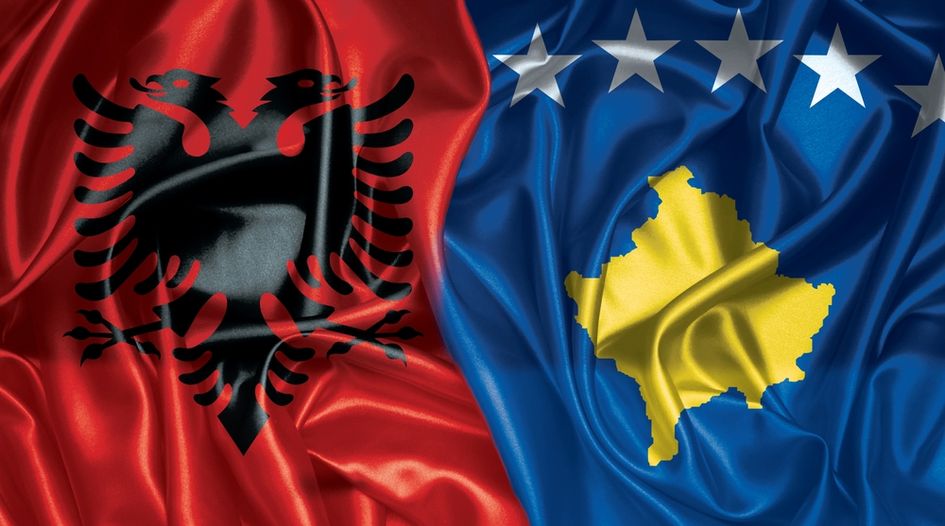Key differences between trademark regimes in Albania and Kosovo

Unique features of Albanian trademark regulations
| Capital | Tirana |
|---|---|
| Population | around 3 million |
GDP per capita | $6,494 |
| Main industries | Energy, mining, metallurgy, agriculture and tourism |
The concept of industrial property emerged in Albania in the 20th century – in conjunction with the founding of its IP office – and is still developing.
Today, Albania is a member of several influential international organisations and agreements, including:
- the WIPO;
- the Patent Cooperation Treaty;
- the Nice Agreement on the International Classification of Goods and Services;
- the Madrid Agreement for International Trademark Registration;
- the European Patent Organisation; and
- the Hague Agreement on the International Registration of Industrial Designs.
In 2017 the country dropped all graphical representation requirements for trademarks. The following year it adopted a new regulation clearly defining word, figurative, pattern, colour and shape marks, clarifying the allowance of non-traditional trademarks.
Interestingly, the Albanian IP Office will refuse trademark applications featuring a non-distinctive dominant element – even if the applicant requests a disclaimer for it – during its substantive examination.
Official fees for trademark applications and renewals cover one class only, with fresh fees for each additional class. This contrasts with almost all other jurisdictions in the Balkans (apart from Croatia), where the basic fee covers three classes. However, registration fees are the same regardless of the number of classes involved.
Trademark registrants in Albania may now divide their mark across two or more registrations – a luxury previously extended only to applicants. Marks can be renewed six months before the renewal deadline at the earliest, with a six-month grace period.
Electronic filing is available, and relevant power of attorney documents can be submitted during or after the filing process. Power of attorney materials in all Albanian IP matters must be signed with a company seal or stamp. When the relevant party is a person, not a company, a seal is unnecessary but notarisation is required.
Unique features of Kosovan trademark regulations
| Capital | Pristina |
|---|---|
| Population | around 1.8 million |
| GDP per capita | $5,270 |
| Main industries | Agriculture, metals and mining |
In November 2007 Kosovo began permitting trademark applicants to file directly with the country’s IP Office. Nearly a decade later, in December 2017, the office launched its online trademark and patent database, allowing users to browse applications and registrations digitally. However, electronic filing is not yet available.
While applicants can omit graphical representations from their trademark applications, it is mandatory that they precisely define the goods and services for which protection is sought. Applications featuring only the class headings of goods and services are no longer admissible.
Trademarks can be renewed six months from the renewal deadline at the earliest, and the grace period following expiry is also six months – after which renewal fees double.
Power of attorney documents in all Kosovan IP matters must feature the party’s full name, the date and the location of signing; notarisation and legalisation are optional. The IP Office is indecisive about its company seal requirement on power of attorney documents; presently, the use of a seal is not mandatory but is recommended.

This is an Insight article, written by a selected partner as part of WTR's co-published content. Read more on Insight
Copyright © Law Business ResearchCompany Number: 03281866 VAT: GB 160 7529 10

